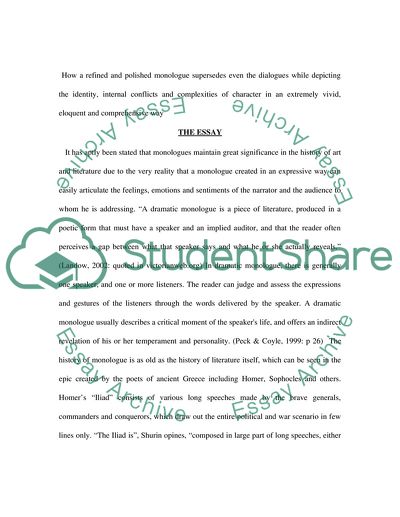Cite this document
(How Monologues Explore Internal Conflicts of Character Essay, n.d.)
How Monologues Explore Internal Conflicts of Character Essay. Retrieved from https://studentshare.org/literature/1732740-how-monologues-explore-the-identityinternal-conflicts-and-complexities-of-character
How Monologues Explore Internal Conflicts of Character Essay. Retrieved from https://studentshare.org/literature/1732740-how-monologues-explore-the-identityinternal-conflicts-and-complexities-of-character
(How Monologues Explore Internal Conflicts of Character Essay)
How Monologues Explore Internal Conflicts of Character Essay. https://studentshare.org/literature/1732740-how-monologues-explore-the-identityinternal-conflicts-and-complexities-of-character.
How Monologues Explore Internal Conflicts of Character Essay. https://studentshare.org/literature/1732740-how-monologues-explore-the-identityinternal-conflicts-and-complexities-of-character.
“How Monologues Explore Internal Conflicts of Character Essay”, n.d. https://studentshare.org/literature/1732740-how-monologues-explore-the-identityinternal-conflicts-and-complexities-of-character.


